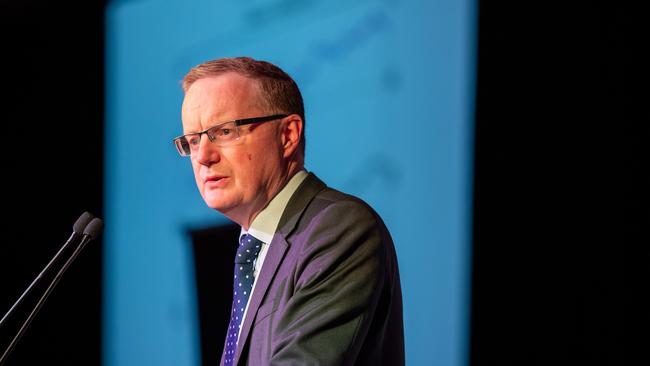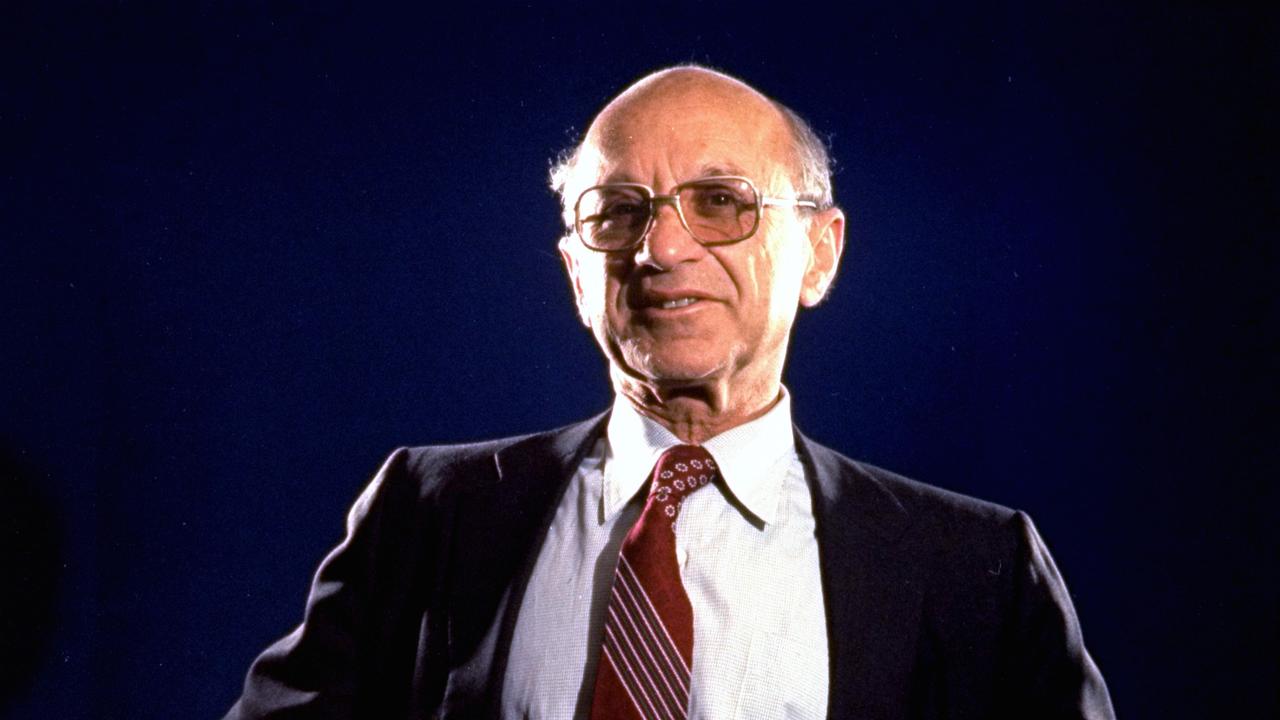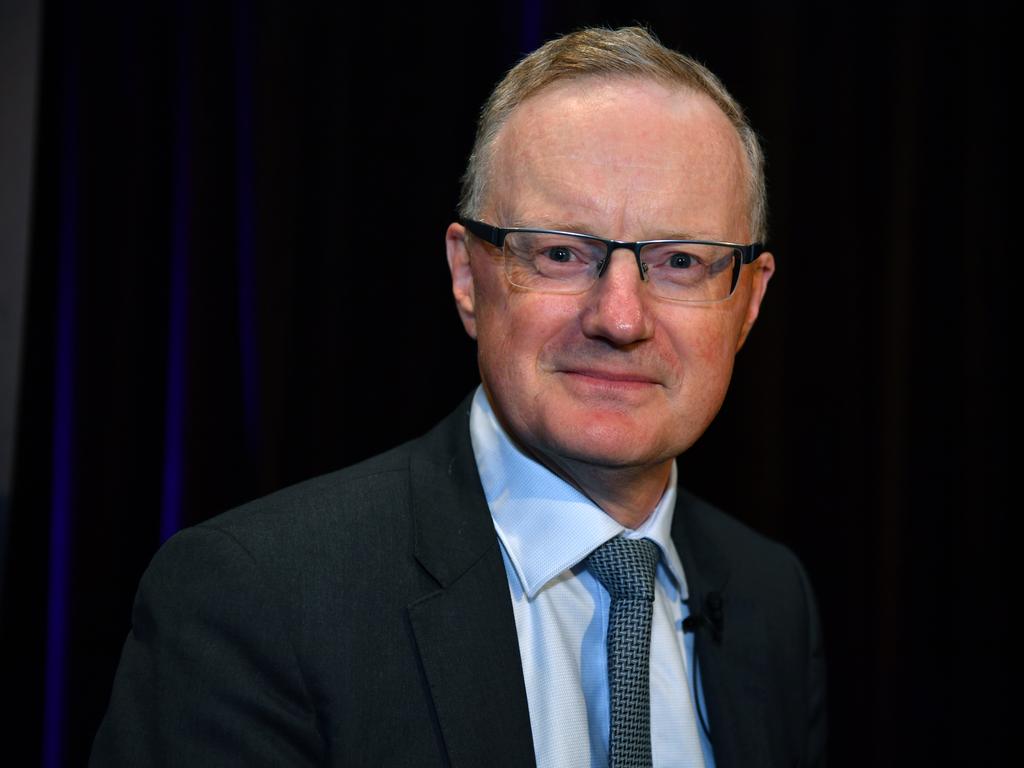RBA boss Philip Lowe leaves ministers frustrated
A confidential cabinet briefing from Philip Lowe on Monday left ministers exasperated by an absence of detailed policy ideas.

The Morrison government is increasingly frustrated with Reserve Bank governor Philip Lowe’s calls for it to spend more to lift the nation’s flagging productivity, after a confidential cabinet briefing from the RBA boss on Monday left ministers exasperated by an absence of detailed policy ideas.
Dr Lowe in a speech on Wednesday again exhorted the Coalition to do more to foster business spending as he highlighted a “troubling decline in productivity growth”, despite “fantastic” economic fundamentals. “While the reasons for this are complex, it is hard to escape the conclusion that higher levels of investment spending would promote productivity growth and our collective living standards,” he said.
The Australian understands Dr Lowe relayed those calls in a rare confidential cabinet briefing on Monday, leaving senior cabinet members frustrated by a lack of detail from the governor on specific measures and projects he wanted the government to pursue.
Dr Lowe also said on Wednesday that whether the government recorded a small budget surplus or deficit was “not really economically important”. What occupied the bank was the potential for government policy to stimulate investment, particularly in the private sector and at a time when businesses had the opportunity to borrow at rates that were the “lowest since Federation”.
Labor has repeatedly used Dr Lowe’s comments to criticise the government for not doing enough to stimulate the economy and lay the foundations for future growth.
On Wednesday, Labor Treasury spokesman Jim Chalmers renewed those attacks, arguing that government inaction had “left the Reserve Bank to do all the heavy lifting”.
Josh Frydenberg welcomed the governor’s upbeat assessment of the country’s outlook, saying the economy had a “remarkable story to tell” and Australia enjoyed a “set of fundamentals and a standard of living that few other countries enjoy”.
“The governor did point out that challenges remain around consumer spending and productivity growth,” the Treasurer said. “These are areas the government continues to address through our economic plan, which includes the largest tax cuts in two decades, our 10-year, $100bn infrastructure plan and 80,000 new apprenticeships.”
On Tuesday, the RBA board held rates steady at 0.75 per cent, as expected, but shocked some in the economics community by not downgrading its growth forecasts for the year, despite the toll from a horrific bushfire season and the climbing losses associated with the coronavirus.
The governor, in his speech on Wednesday, repeated his view that economic growth for this year as a whole would be “largely unaffected” by the fires.
Dr Lowe acknowledged the damage wrought by the “Black Summer” on lives, properties and livelihoods, but said in gauging the overall effect of the catastrophe on the economy this year, the bank “took into account that there will be a material rebuilding effort and that government grants and insurance payments will assist many people”.
There would be a “noticeable” effect through the six months to March but the bank estimated the hit to be a 0.2-percentage-point reduction across the two quarters.
Dr Lowe also addressed the “new uncertainty” of the coronavirus outbreak, which has killed close to 500 people and triggered a ban on the entry into Australia of travellers from China. In unscripted remarks following the speech, he said it was “important we don’t catastrophise” the potential impact of the epidemic on Australia’s economic outlook.
He said he would be “surprised” if Australia saw negative March quarter growth as a result of the outbreak. “To get a negative quarter this quarter … we’d have to see an acceleration of the problems, and (that) the intensification of the efforts the Chinese have made to contain the virus not be successful.”
He cited the precedent of the outbreak of the severe acute respiratory syndrome (SARS) epidemic in 2002-03, which killed 774 people, according to the World Health Organisation, the majority of whom were in China and Hong Kong. During that health alert, he said, “we did see a sharp contraction in China’s output and then it did bounce back”.
“It’s possible it [the coronavirus epidemic] doesn’t work out well, but it’s possible it goes the same way as SARS,” he added. Dr Lowe repeated that he expected growth to lift to 2.75 per cent this year — a marked acceleration from the 1.7 per cent pace set over the year to September.
He said the outlook should be supported by stronger global growth and domestic consumer spending, solid growth in public demand, ongoing high levels of infrastructure investment and the likelihood that the downswing in residential construction would come to an end later in 2020.
Dr Lowe hit back at criticism that the bank’s three rate cuts in 2019 had hurt confidence, saying the economy “would have been weaker” had the central bank not acted. “I certainly understand that having interest rates at very low levels has unsettled some people,” he said, “but I don’t accept the idea that this is what is driving weak consumption.”
Dr Lowe conceded that the bank had been caught out by how poorly the economy performed through 2019. He said the dramatic slowdown in consumption was largely behind the country’s underwhelming performance as households adjusted to the reality of “two-point-something” wage growth, exacerbated by the sharp falls in property prices through to the middle of the year.
Additional reporting: David Rogers







To join the conversation, please log in. Don't have an account? Register
Join the conversation, you are commenting as Logout